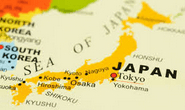Government/Policy

August 17, 2022
Nippon Steel Seeks Lower Dumping Rates on HR Steel
Written by Laura Miller
The US Department of Commerce recently recalculated the dumping margins for hot-rolled steel flat imports from Japan’s Nippon Steel. And while Nippon supports the remand results, it has also filed comments with the US Court of International Trade (CIT) regarding two additional complaints.
On the remand order of the CIT, Commerce recalculated Nippon’s dumping rate for the 2018–2019 administrative review. Having previously determined an 11.7% dumping margin, the Department adjusted the rate to 10.12% after taking embossing, slitting, and cutting-to-length revenues into account.
Nippon has now asked the CIT to reconsider two more of its complaints, according to court documents reviewed by SMU. The first is regarding Commerce deducting Section 232 duties from Nippon’s US prices, which it says is not supported by evidence and is not lawful. The second has to do with Commerce applying adverse facts otherwise available on unreported downstream sales.
Nippon Steel “looks forward to the Court’s disposition of the first and second counts of” its complaint, counsel for Nippon Steel states in a letter to CIT Judge Mario Toscano.
By Laura Miller, Laura@SteelMarketUpdate.com







